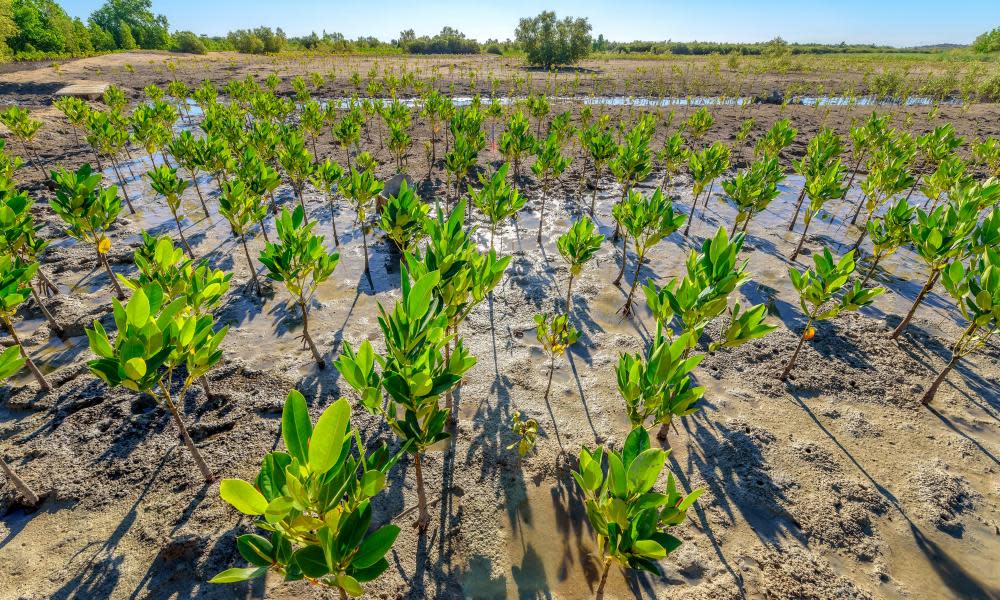Oceans panel presses coastal states to invest in 'blue recovery'

Investing in the marine environment offers many coastal states the possibility of a “blue recovery” from the coronavirus crisis, according to a report setting out substantial economic benefits from ocean conservation.
Ending overfishing and allowing stocks to recover while ensuring fish farms operate on a sustainable basis would generate benefits of about $6.7tn (£5.3tn) over the next 30 years, according to an assessment of ocean economics by the High Level Panel for a Sustainable Ocean Economy.
This would require reforming perverse subsidies that encourage overfishing, and better regulation of fish farming, but the returns on such investment would repay the outlay 10 times over, the report says.
Mangrove restoration on tropical coastlines offers a quick way to generate jobs in seeding and planting, and returns of about $3 for every $1 spent, in the form of more productive fisheries as well as storm protection.
The costs of offshore wind energy generation have plummeted in recent years, making clean energy generation at sea a viable prospect for many countries for the first time. The UK has long been a pioneer in the field, but many other countries have been slow to take it up.
The report found that the technology has matured so quickly that investors can generate returns of up to $17 on each $1 spent, opening up a potential bonanza globally of $3.5tn by 2050 if governments put the right conditions in place.
Ngedikes Olai Uludong, Palau’s ambassador to the UN and one of the panel members, said offshore wind energy could spell an explosion in highly skilled green jobs. “Technologies like offshore wind offer a rate of return that makes more and more sense,” she told the Guardian. “It looks like it is taking off. I’m seeing interest from countries that I’ve never seen interested before.”
She said countries were also increasingly willing to look at a nature-based recovery in their quest to “build back better” from the coronavirus crisis. Coastal states should urgently look at reforming their commercial fisheries to put them on a long-term sustainable basis, she said, which could reduce their expenditure on imports as well as generating income.
Decarbonising international shipping is another key concern, and the switch to cleaner fuels could save money in the longer term, with a return of between $2 and $5 on every $1 spent in the next three decades, the report’s authors found.
The report will be published on Tuesday. The panel is made up of 14 serving world leaders, co-chaired by Norway and Palau, and is supported by the UN.

 Yahoo News
Yahoo News 